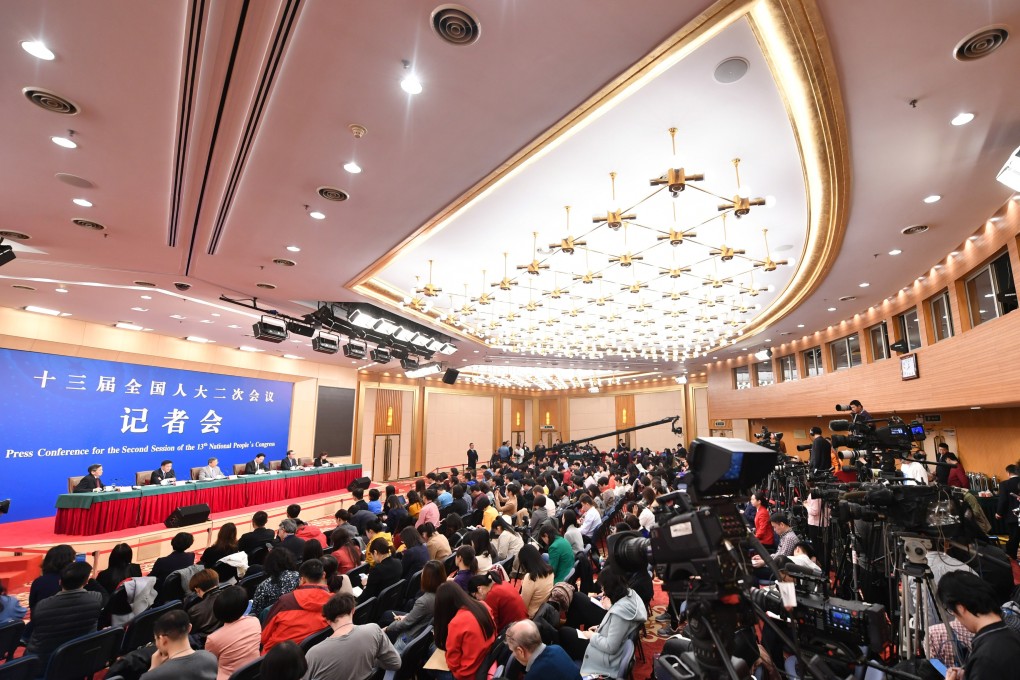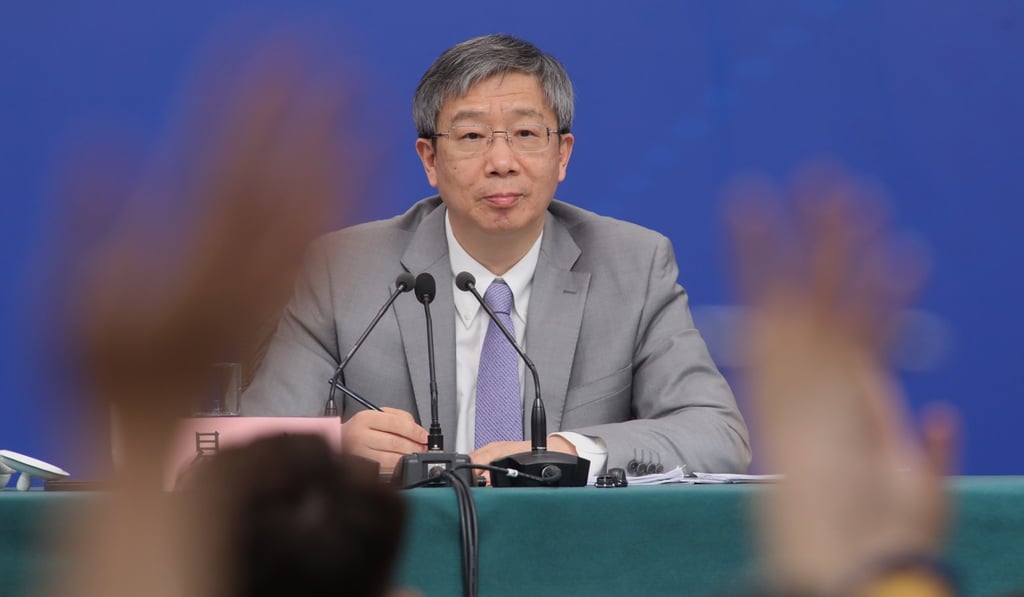China has made a clear effort to keep yuan exchange rate stable, says central bank
- People’s Bank of China governor Yi Gang says Beijing will not devalue yuan to boost exports or ease trade tensions amid the US-China trade war
- China’s foreign exchange intervention has long been a political target in the United States and Donald Trump vowed to declare China a currency manipulator in 2016

China has made a clear effort over the last four years to maintain a stable exchange rate in the face of sustained downward pressure on the yuan, People’s Bank of China governor Yi Gang said on Sunday.
Yi also said there remains room to cut banks’ reserve requirement ratio, though that room is smaller than it was in the past.
“Since the beginning of 2015, the [yuan] has been facing depreciation pressure from various external and domestic factors,” Yi said during the National People’s Congress meetings in Beijing. “However, facing this depreciation pressure, the Chinese monetary authorities are still trying to maintain the basic stability of the [yuan] exchange rate at a reasonable and balanced level.
“To this end, China’s foreign exchange reserves have been reduced by US$1 trillion, which means that this effort is very clear to the whole world. And our trade partners have been very clear about this during talks [on exchange rate issues].”

The two countries “did discuss the yuan exchange rate issue in the seventh round of trade talks” in Washington last month, Yi said.